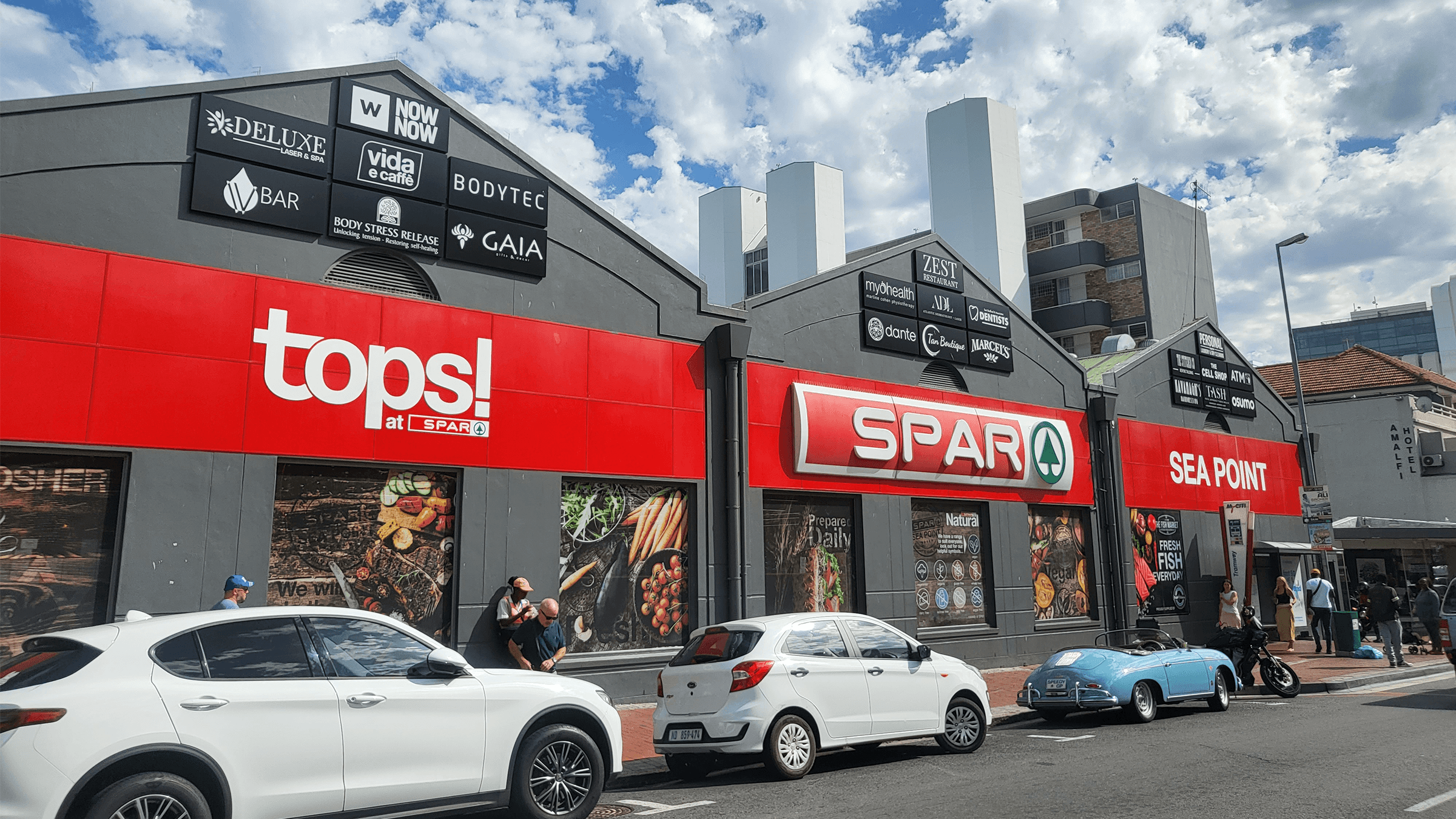The summer season of 2022/2023 in Cape Town has been a remarkable one. Post-Covid, tourists are back in droves, restaurants, beaches, hotels and stores are full, there is a vibrant atmosphere in the city and the weakened currency makes it an affordable, fabulous holiday if you are coming from the UK.
Although the country is wracked with problems – including hours upon hours a day of power outages, ocean pollution, homelessness and unemployment at an all-time high – there is still much to be positive about, and huge opportunities to be had.
During the apartheid years, the heart of Cape Town was Sea Point. Dominated by the law of ‘whites only’, the area was affluent, with pristine beaches, blocks of luxurious beachfront apartments, and smart shops and restaurants on Main Road behind. Post-1994, and Sea Point today is a diverse community, where people come together from all walks of life. Stores are therefore varied on Main Road: fast food joints, rowdy beer bars and discount shops stand next to up-market coffee shops, boutiques and restaurants.
There are three supermarkets on the street in close proximity of each other: Woolworths, which presents like an M&S Simply Food; a large, generic Checkers, which is equivalent to a big Tesco; and the stand-out of the three – Spar.
This Spar is one-of-a-kind. Run by two brothers, Chris and George Argirakis, and Chris’ son, Alex, the store is a shining example of the magic of local retail.
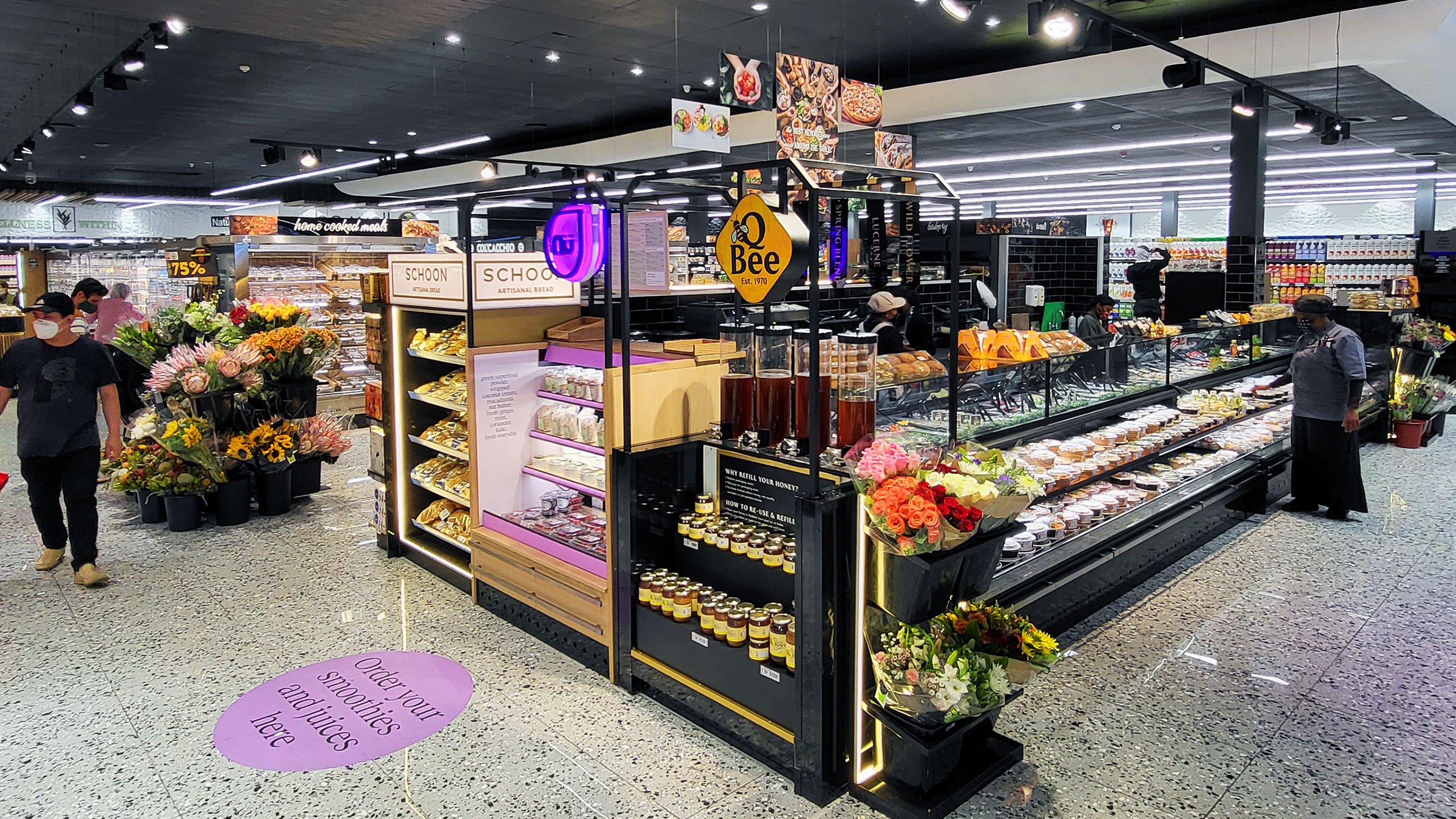
On entering the store, there is an immediate sense of retail theatre. Go left and one is greeted by a visual feast of fruit and veg laid out by colour. To the right and there is a stand with cakes and biscuits to taste. The Atlantic Seaboard, as the extended suburbs are known, is affluent and exclusive and so the excellent and exotic fish counter looks like a mini aquarium! There is also an extensive kosher section, with a fully-fitted kitchen where chickens and potatoes roast, bread and cakes are baked and there’s also a world-class deli counter.
Further down the aisles is the all-important health and wellness section, with a break-out space for nutrition and a counter for expert health advice. The store makes sure to cater for everyone, and value is visible for the average shopper, too.
I’d been in the store for about ten minutes when I knew that I wanted to learn more, and asked a staff colleague to call the manager. Within a few moments, I met Alex, and was listening to him speak about the store, its history, and its success.
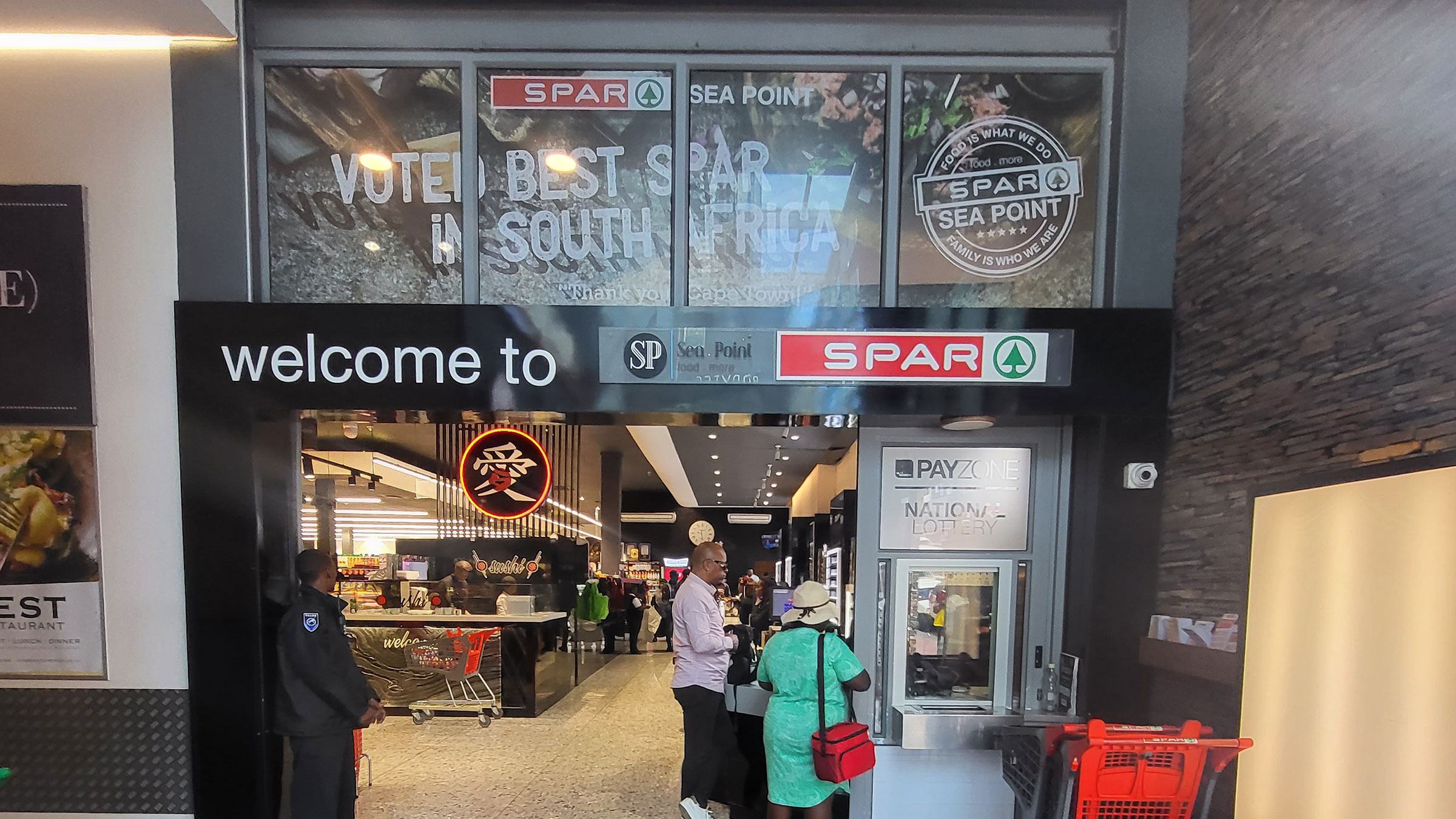
Chris and George Argirakis have operated Spar stores for the past thirty years, but mainly in Johannesburg. Seven years ago, the family moved to Cape Town, and took control of Spar Sea Point from Spar corporate, and began the transformation journey. Speaking to Alex, who came on board five years ago, he described the state of the store when his father and uncle first took over: “There is no way to sugar coat this… it was diabolical,” he told me. “It was losing money on a monthly basis and run by a demotivated work force.”
Upon taking over, the first port of call for the Argirakis family was transforming the culture. “We knew we had to focus on staff before doing anything cosmetic. After all, you can put makeup on a pig but at the end of the day it’s still a pig!”
Doing away with hierarchy has been central to the family’s approach. Alex tells me that he, his father and his uncle don’t hide away in a back office, but spend most of their time on the shop floor: “You’ll find my father stacking crates and my Uncle George baking the bread. My favourite place to stand is right by the tills. No matter what people buy, I’m there to make sure our customers leave with a smile. Everyone is welcome and treated with the same amount of enthusiasm and respect.”
After five years, they were happy with their workforce, had a low rate of staff turnover, and had fostered a strong management team. The pace and energy of the work also improved, Alex told me, and naturally those members of staff who couldn’t keep up filtered out of the business.
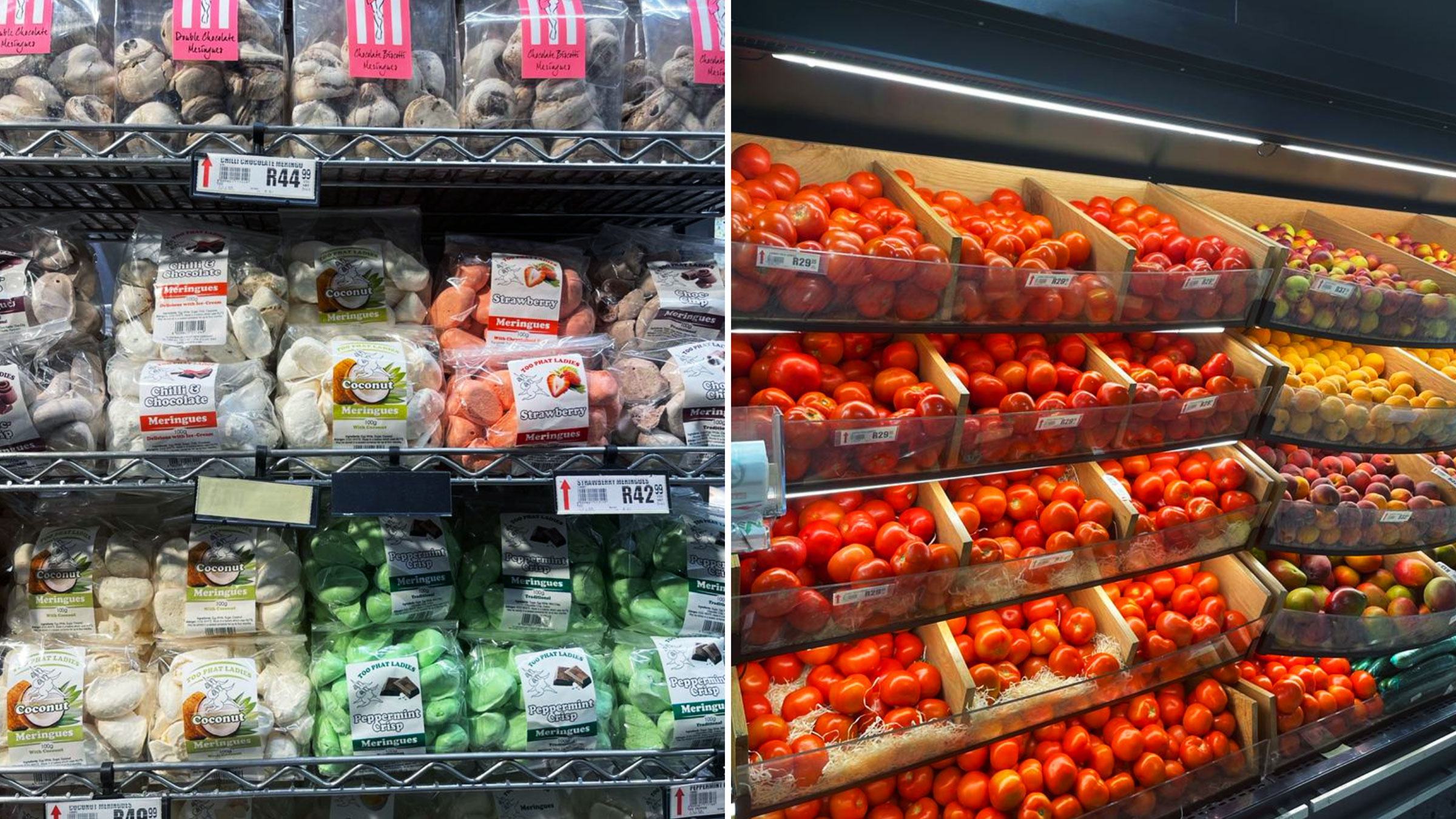
Over the past seven years, the company’s product offering has also grown and evolved spectacularly. Today, Spar Sea Point is known for its wide range of produce, from the best choices for vegan and vegetarians, to meat and chicken spices, sauces, and condiments. The site caters to different religious diets, health needs and cultural preferences, stocking independent, family-owned local labels and international brands that are hard to find elsewhere.
“It’s one of the main benefits of being so visible on the shop floor,” Alex told me. “Customers simply tell one of us what they want. Our health foods department started because we had one customer who was celiac… now that unit makes up 15% of our business. Talk to people, listen to them, and then give them what they want at the right price, and success will happen organically.”
“Our health foods department started because we had one customer who was celiac… now that unit makes up 15% of our business. Talk to people, listen to them, and then give them what they want at the right price, and success will happen organically.”
Today, the Spar Sea Point store has around 36,000 SKUs, more than double the average South African grocer. While 60% of the product range is provided by Spar Corporate, the rest is chosen and sourced by the team on the ground – a process which involves reaching out to international traders, wading through in-bound offers from suppliers, and adapting supply lines to offer the widest-possible selection of items.
It is this attention to detail – and a determination to serve the customer – which makes Sea Point Spar so special.
I wonder if there are lessons to be learnt here for major grocers. In London, I much prefer visiting shops which feel specialised to my local area, where I know the names of the staff, and the product choice reflects the community.
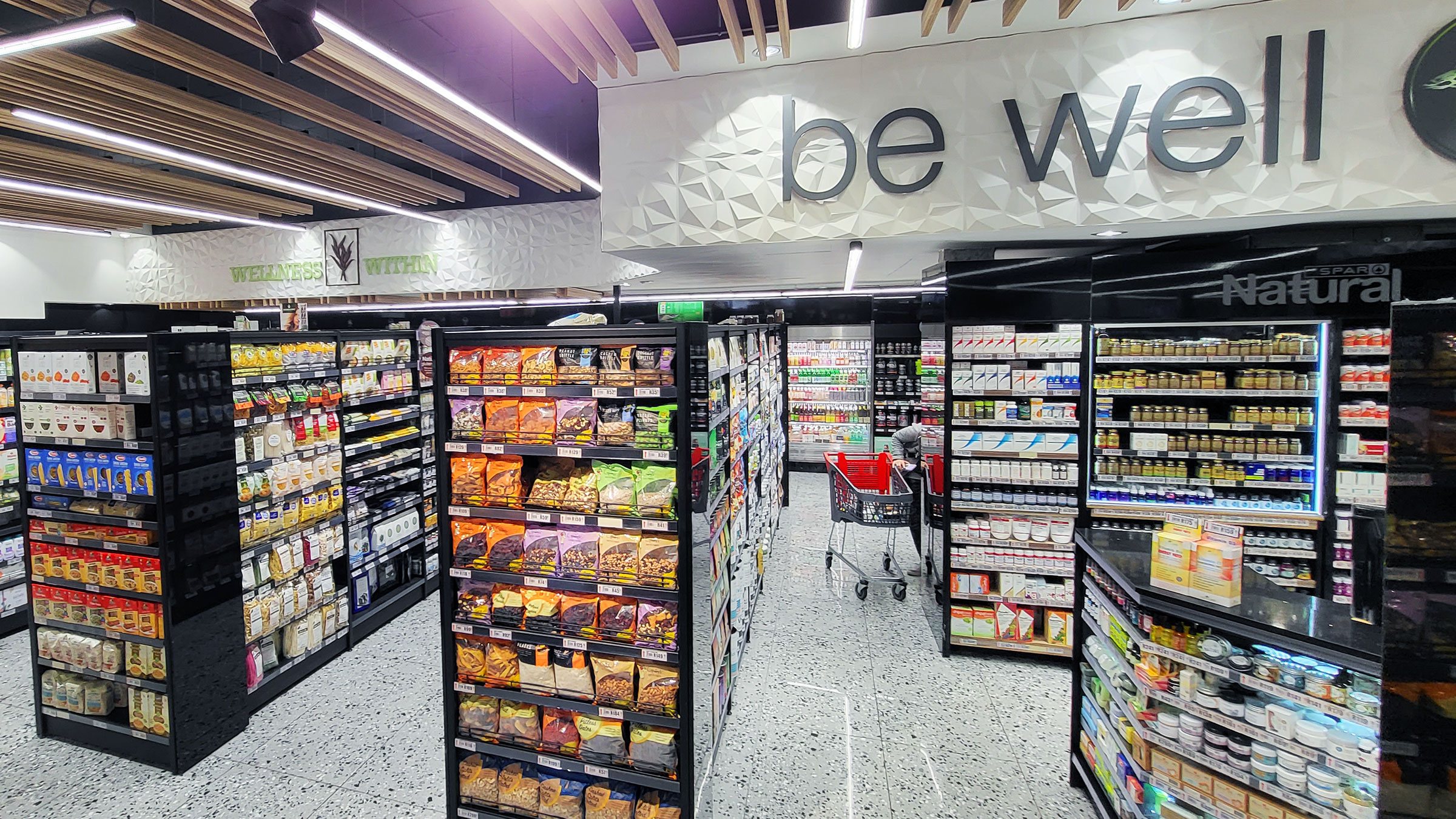
But replicating this approach at a multi-site level would come with real challenges. I ask Alex whether he thinks that it is possible to do this when there are hundreds of company stores throughout a country.
“The level of detail we put into this store is the reasons we’ve historically never bought a second site.”
“The level of detail we put into this store is the reasons we’ve historically never bought a second site. But now this one is working so well, we are looking to open a second store,” he told me. “If large grocers want to differentiate, they’d need an ambassador in each store providing regular and detailed feedback, as well as sourcing at least 20% of the product for the local customers. Most of all, they’d have to trust their store managers. None of it would work without a high level of trust.”
Alex wants to get on and I need to continue looking, taking photographs and in fact filling a basket with product to bring back to London (the kitchen utensils are excellent!). When I return to the front of the store to pay, (no self check-out here), I am not surprised at all to see Alex at the tills greeting customers and helping to pack shopping bags. The personal touch in retail is as relevant today as it ever was, and I leave feeling that I know I will want to return again and again.
Tell us about your family? I come from a big family and we have been in grocery for generations. My father is Greek and my mother is Portuguese and we all love food. Both my maternal and paternal grandparents were grocers.
Who are your mentors? My father, Chris and Uncle George. It’s because of them that I have the benefit of hindsight. We are a great combination: they’ve got the smarts and I’ve got the energy.
What’s your favourite book? Conn Iggulden wrote a series on Genghis Khan, and that series influenced me.
What do you want your legacy to be? I have never put thought into what my legacy might be. Not the store – I’d much rather be remembered for accommodating my community as an individual. Besides, when it comes to the store, I’m only as good as the last loaf of bread I sold… so I never take a compliment too seriously! All I hope is that customers come to our shop and have a good time.





